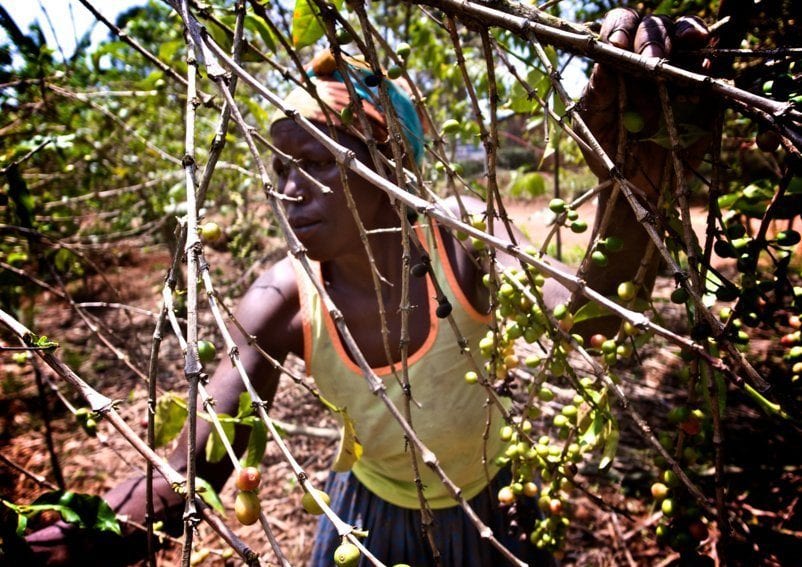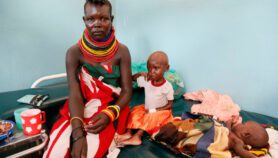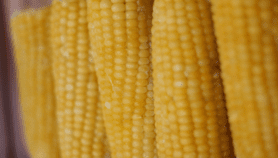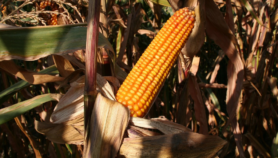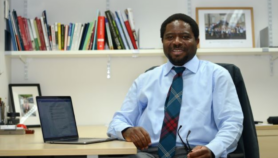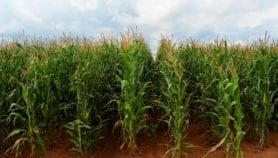By: Alberto Leny
Send to a friend
The details you provide on this page will not be used to send unsolicited email, and will not be sold to a 3rd party. See privacy policy.
[KIGALI] As technological innovations continue to multiply at a breath taking pace, African farmers can now tap into ‘smart’ weather data to accurately monitor their farming activities for enhanced efficiency and profitability.
The ICT4Ag conference in Kigali, Rwanda, held early this month (4-8 November), was an eye-opener, showcasing latest interventions for helping farmers, governments and NGOs with uniquely powerful software applications tailored to the agricultural sector.
“We have released three new products — government, farmer and co-op editions — to help coffee stakeholders around the world protect and improve their farmers with this unique software,” says David Mills, director of WeatherSafe Ltd, a UK-based organisation that analyse satellite data on weather and climate change to help farmers in developing countries.
Mills adds: “We have launched a pilot project with farmers in Rwanda to deliver solutions that cut across the board”.
“Developing countries and their fragile economies are most vulnerable to the effects of climate change and are also least equipped to deal with environmental disasters when they happen. ‘Smart’ weather data will go a long way in addressing this critical issue.”
Alberto Leny, SciDev.Net.
WeatherSafe Ltd, in partnership with the France-headquartered European Space Agency, is providing a solution combining local weather monitoring, agronomic data modelling and high resolution satellite data with pinpoint accuracy to give vital weather information to farmers on areas as small as 10 square metres within their farms.
The pilot project can be replicated in other African countries, says Mills, adding that his outfit is considering scaling up the high tech to cover the tea sector as well, offering great promise to countries such as Kenya and Uganda, where tea and coffee are major foreign exchange earners.
“Rwanda values the use of ICTs [information and communication technologies] to help farmers to produce more and in an efficient, closely monitored manner. Accurate weather data is vital to achieving this goal and farmers are already realising the benefits of such services,” says Mary Rucibigango, coordinator of Rwanda Agricultural Information and Communication Centre.
The WeatherSafe Ltd solution operates on a satellite and monitoring platform that supports increased yield of speciality coffee, apart from providing early warnings of pests and diseases. Rwanda is providing targeted advice to farmers to optimize yields.
The project has already employed agronomists and developers and is conducting training in satellite and data science. Developing countries and their fragile economies are most vulnerable to the effects of climate change and are also least equipped to deal with environmental disasters when they happen. ‘Smart’ weather data will go a long way in addressing this critical issue.
Donors and innovation supporters at the ICT4Ag meeting urged African governments to leverage on digital designs and satellite technology to spur agricultural development on the continent and lift farmers to a new stage of ICTs-inspired growth.
David Bergvinson, deputy director for digital design for agriculture initiative of the Bill and Melinda Gates Foundation, told delegates at the conference: “Through the digital revolution, access to knowledge and the use of ICT-enabled tools, organisational support for the development of hardware and software that enhance institutional capabilities, farmers can realise the fruits of their labour and contribute to food security”.
This article has been produced by SciDev.Net's Sub-Saharan Africa desk.


